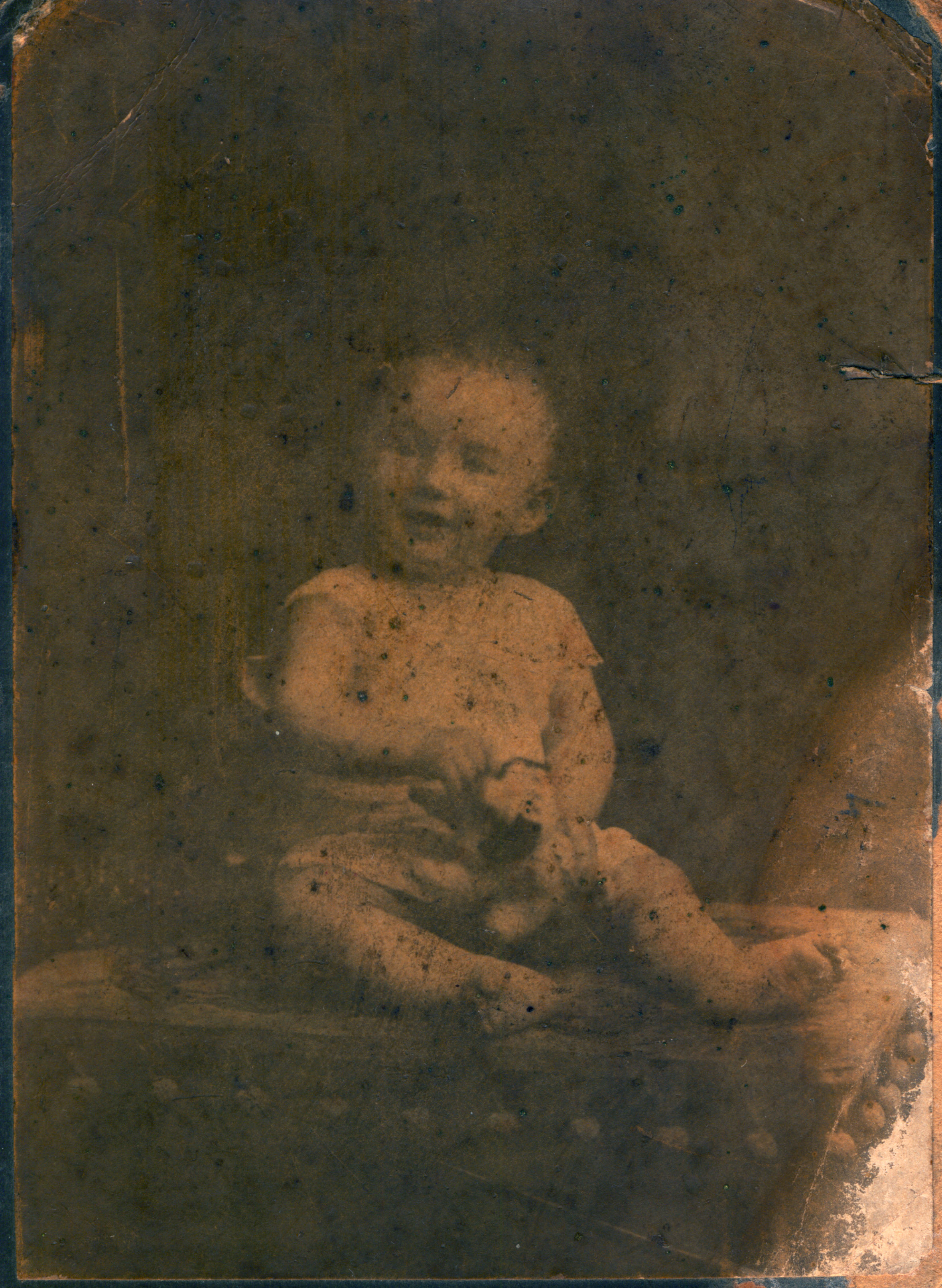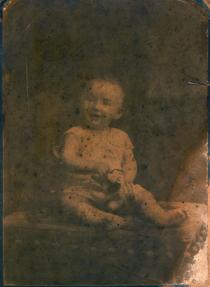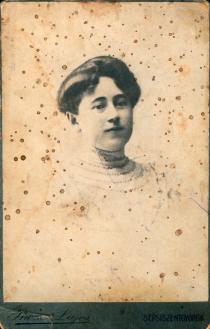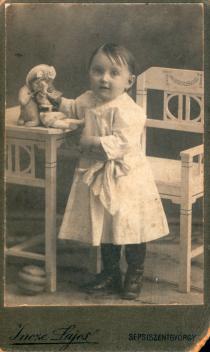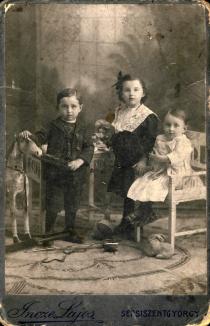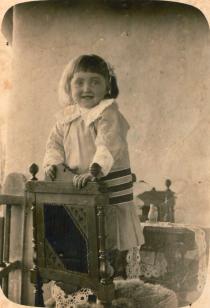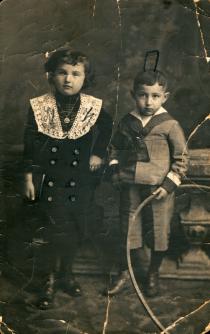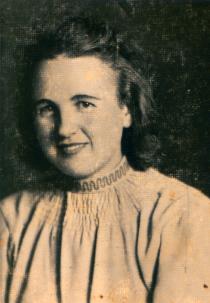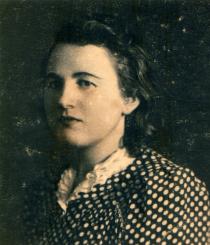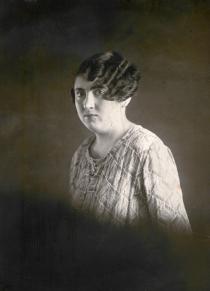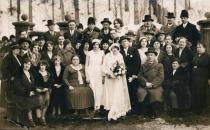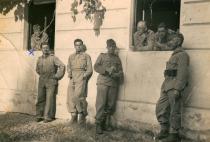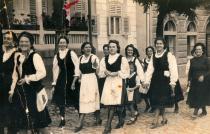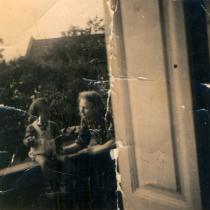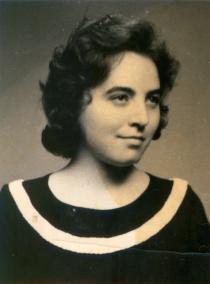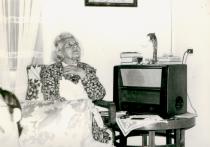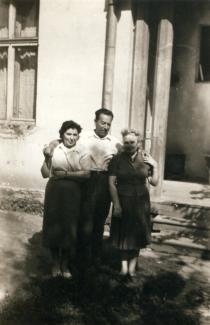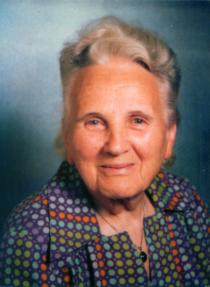This is me, Alice Kosa [nee Molnar] in around 1910, as a happy baby.
I was born on 16th May 1909. My mother, Regina Molnar was 20 years old when I was born, my father, Albert Molnar was 21.
I had a Jewish name - Szuri -, as one had to have. But nobody ever called me Szuri, I don't know what I would have done.
A child likes what he gets used to. The family called me Alica, called me Aliszka, but nobody called me Szuri
My mother died when she was 23. A nice family, as one might call it, disintegrated within hours.
We lived in a village, in Nagyborosnyo, and my mother came in with the three children [to Sepsiszentgyorgy, to grandma] and with the domestic - of course we had a domestic, as there were three children.
And she died in two or three days. She must have had appendicitis, because they dissected her, and she was full of pus inside, I suppose they couldn't discover it then.
I met many people during my long life, whose parents died in a similar way. Well, appendicitis wasn't known, and due to poultices it turned into peritonitis.
She left behind three little children. When she died, I was 3 years old, my brother one and a half and my sister six months old.
But I recall clearly some things from the age of three: a Christmas, that there was a Christmas tree on the table, and a chocolate roll big like this, it must have been of chocolate, because it was covered with silver, and I liked that.
And what I still remember, and I could cry of it even now, and I was crying for years, though I was only three years old, when my mother died.
I remember clearly that an auntie was holding my hand at the grave, she asked me something bent down to me I only remember that I told her: 'She will come home by the evening.'
I suppose she must have told me: 'Your mother is gone.' I might have answered to this: 'She will come home by the evening.'
I tell you as it was, this sentence haunted me for years, and if it came to my mind, I cried, that I had been waiting for her to come in the evening, that...
I was sent to my maternal grandmother [to Franciska Feder].
My grandmother lived of moderated means, but my father paid my grandmother for my clothing, so my father provided for all the three children. He never married again.
